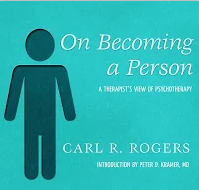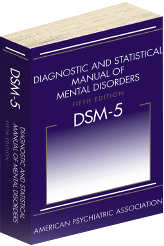10 Books every counselor and therapist should read.
- Leo DeBroeck, MS, LMHC, CMHS

- May 24, 2020
- 5 min read
Updated: May 25, 2020
10 Books every therapist, counselor, social worker, psychology student, and grad school student should read in school and keep on their bookshelf.
1)
Cognitive Behavior Therapy: Basics and Beyond by Judith S. Beck (forward by Aaron T. Beck)

The leading text for students and practicing therapists who want to learn the fundamentals of cognitive behavior therapy (CBT), this book is eminently practical and authoritative. In a highly accessible, step-by-step style, master clinician Judith S. Beck
demonstrates how to engage patients, develop a sound case conceptualization, plan treatment, and structure sessions effectively. Core cognitive, behavioral, and experiential techniques are explicated and strategies are presented for troubleshooting difficulties and preventing relapse.
2)
Compassion Focused Therapy has unique strengths, and is especially effective in helping clients work through troubling thoughts and behaviors, approach themselves and others with greater compassion and kindness, and feel safer and more confident in their ability to handle life’s challenges and difficulties. This book articulates the theoretical basis of the therapy in simple, easy-to-follow language, and offers practical guidance and strategies on how to tailor your CFT approach to specific client populations. This books is a great introduction book that offers practical ways that they can integrate it into their care.
3)
Cognitive-Behavioral Treatment of Borderline Personality Disorder by Marsha M. Linehan
For the average clinician, individuals with borderline personality disorder (BPD) often represent the most challenging, seemingly insoluble cases. This 1993 volume is the authoritative presentation of dialectical behavior therapy (DBT), Marsha M. Linehan's comprehensive, integrated approach to treating individuals with BPD. DBT was the first psychotherapy shown in controlled trials to be effective with BPD. It has since been adapted and tested for a wide range of other difficult-to-treat disorders involving emotion dysregulation. While focusing on BPD, this book is essential reading for clinicians delivering DBT to any clients with complex, multiple problems

4)
Man’s Seach for Meaning by Victor E. Frankle
This book, starting off logostherapy, has riveted generations of readers with its descriptions of life in Nazi death camps and its lessons for spiritual survival. Between 1942 and 1945 psychiatrist Viktor Frankl labored in four different camps, including Auschwitz, while his parents, brother, and pregnant wife perished. Based on his own experience and the stories of his many patients, Frankl argues that we cannot avoid suffering but we can choose how to cope with it, find meaning in it, and move forward with renewed purpose. Frankl's theory—known as logotherapy, from the Greek word logos ("meaning")—holds that our primary drive in life is not pleasure, as Freud maintained, but the discovery and pursuit of what we personally find meaningful. We can stand any “how” if we have a “why.”

5)
The Body Remembers: The Psychophysiology of Trauma and Trauma Treatment by Babette Rothschild
Memory is often expressed in the symptomatology of posttraumatic stress disorder-nightmares, flashbacks, startle responses, and dissociative behaviors. In essence, the body of the traumatized individual refuses to be ignored While reducing the chasm between scientific theory and clinical practice and bridging the gap between talk therapy and body therapy, Rothschild presents principles and non-touch techniques for giving the body its due. With an eye to its relevance for clinicians, she consolidates current knowledge about the psychobiology of the stress response both in normally challenging situations and during extreme and prolonged trauma. This book gives clinicians from all disciplines a foundation for speculating about the origins of their clients' symptoms and incorporating regard for the body into their practice.
6)
The 5 Love Languages: The Secret to Love that Lasts by Gary Chapman
The love languages have been improving relationships for nearly 30 years. Its ideas are so simple and conveyed with clarity and humor, making this book as practical as it is personable. It is for more than just students but for everyone. This one I would recommend to anyone that is looking to better understand emotional communication with others.
7)
I Want my Dad: Helping teens and children understand a parent’s dependency to drugs or alcohol by Leo DeBroeck
This one is not just for children but can be helpful for clinicians and students to start to be able to see things through their eyes. This is also good for helping see how childhood experiences can also cause an impact long into life and their future relationships, especially as related to Children of Alcoholics and see how supportive groups can be. The story goes through the life of Alex whose father suffers from the disease of addiction and dependency on drugs or alcohol. The book explores how Alex thinks, feels, and acts to his father’s dependency and how family separation may occur at times. Drug and alcohol dependency is explained to Alex in the way children and teenagers can comprehend. The book also contains helpful information for helping teens and children to understand alcoholism and drug dependency problems. It further contains information and helpful discussion questions for adults. Both of those can be helpful for students to see how to discuss those topics.
8)
The Diagnostic and Statistical Manual of Mental Disorders (DSM-5) by the American Psychiatric Association
This book is the product of more than 10 years of effort by hundreds of international experts in all aspects of mental health. Their dedication and hard work have yielded an authoritative volume that defines and classifies mental disorders in order to improve diagnoses, treatment, and research. There is not a single therapist that doesn’t either own at least one full copy or the smaller desk reference version.
9)
The Seven Principles for Making Marriage Work by John Gottman
The culmination of Dr. Gottman’s lifelong work: an overview of the concepts, behaviors, and skills that guide couples on the path toward a harmonious and long-lasting relationship. Dr. Gottman has scientifically analyzed the habits of married couples and established a method of correcting the behavior that puts thousands of marriages on the rocks. He helps couples with this book to focus on each other, on paying attention to the small day-to-day moments that, strung together, make up the heart and soul of any relationship. Packed with questionnaires and exercises whose effectiveness has been proven in Dr. Gottman’s workshops, this is the definitive guide for anyone who wants their relationship to attain its highest potential. You can also get a summary of the book here.
10)
On Becoming a Person: A Therapist's View of Psychotherapy by Carl R. Rogers
The writer is founder of the humanistic psychology movement, revolutionized psychotherapy with his concept of "client-centered therapy." His influence has spanned decades, but that influence has become so much a part of mainstream psychology that the ingenious nature of his work has almost been forgotten at times. New discoveries in the field of psychopharmacology, especially that of the antidepressant Prozac, have spawned a quick-fix drug revolution that has obscured the psychotherapeutic relationship. As the pendulum slowly swings back toward an appreciation of the therapeutic encounter, Dr. Rogers's "client-centered therapy" becomes particularly timely and important. This book will help any student gain perspective on the history and deeper artifacts within philosophies behind therapy models.
Please share your own thoughts and if there are any books you think we missed!
Share this or find more at CounselorsChoiceAward.Com



















Comments